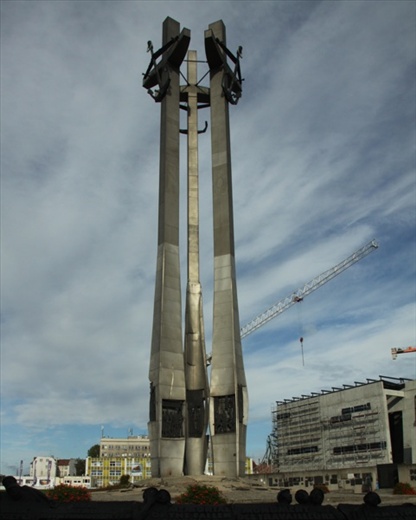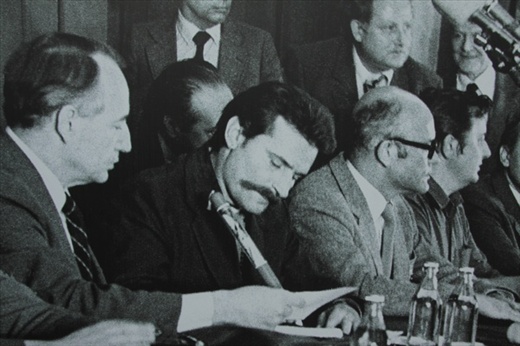A visit to the Roads to Freedom Exhibit is a must in Gdansk. The museum in an underground bunker near the former Lenin Shipyards is a monument to a few committed men with great conviction and huge testicles willing to face down the largest totalitarian regime on the planet. The nearby Monument to the Fallen Shipyard Workers is a precursor to all that transpired afterwards. And continues to this day.

Monument to the Fallen Shipyard Workers
Solidarity began in 1980 as a labor union at the Lenin Shipyards in Gdansk in reaction to the increase in food prices by the soviet government. Soon its influence spread to more than 20 free-trade unions including the Peasant Farmers Union.. Solidarity became a political party and its leader, Lech Walesa, a force to be reckoned with. Solidarity advocated non-violent protests but the soviet regime tried to crush it with a declaration of martial law. In the end, however, Solidarity prevailed over the communist Polish United Workers Party.

Lech Walesa signing the August Agreement legalizing Solidarity
With the support of the Catholic Church and Polish Pope John Paul II, Solidarity's influence spread beyond the borders of Poland into other Eastern Bloc countries. It spawned the Velvet Revolution in Prague and the fall of the Berlin Wall and influenced the Arab Spring. Lech Walesa himself visited Tunisia in support of the Arab Spring of 2011. Ronald Reagan demanded of Gorbachev, "Tear down this wall!" but it was the idea of Solidarity that first weakened the structure.